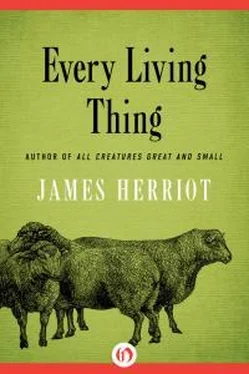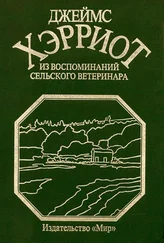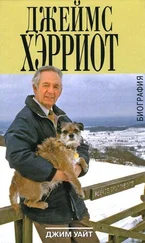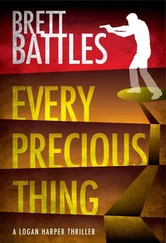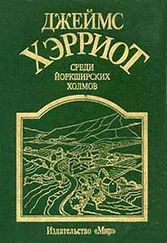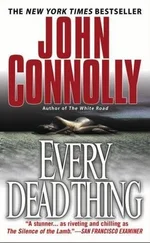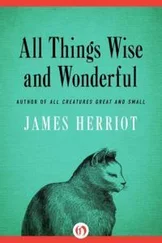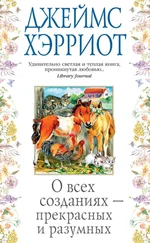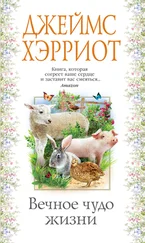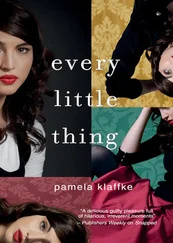Джеймс Хэрриот - Every Living Thing
Здесь есть возможность читать онлайн «Джеймс Хэрриот - Every Living Thing» весь текст электронной книги совершенно бесплатно (целиком полную версию без сокращений). В некоторых случаях можно слушать аудио, скачать через торрент в формате fb2 и присутствует краткое содержание. Год выпуска: 2011, ISBN: 2011, Издательство: Open Road Integrated Media LLC, Жанр: Домашние животные, на английском языке. Описание произведения, (предисловие) а так же отзывы посетителей доступны на портале библиотеки ЛибКат.
- Название:Every Living Thing
- Автор:
- Издательство:Open Road Integrated Media LLC
- Жанр:
- Год:2011
- ISBN:9781453227947
- Рейтинг книги:5 / 5. Голосов: 1
-
Избранное:Добавить в избранное
- Отзывы:
-
Ваша оценка:
- 100
- 1
- 2
- 3
- 4
- 5
Every Living Thing: краткое содержание, описание и аннотация
Предлагаем к чтению аннотацию, описание, краткое содержание или предисловие (зависит от того, что написал сам автор книги «Every Living Thing»). Если вы не нашли необходимую информацию о книге — напишите в комментариях, мы постараемся отыскать её.
Every Living Thing — читать онлайн бесплатно полную книгу (весь текст) целиком
Ниже представлен текст книги, разбитый по страницам. Система сохранения места последней прочитанной страницы, позволяет с удобством читать онлайн бесплатно книгу «Every Living Thing», без необходимости каждый раз заново искать на чём Вы остановились. Поставьте закладку, и сможете в любой момент перейти на страницу, на которой закончили чтение.
Интервал:
Закладка:
Bob turned a startled face towards the source of the noise and his mouth fell open as he spotted the grisly object bowling in his direction. “Oh, bloody ’ell,” he moaned, then turned his face to the wall.
There he stayed as I helped his brother carry Meg over to her basket, scrub the table and generally clear up the debris.
When all signs of our operation had disappeared Adam carried the kettle to the kitchen sink. “I don’t know about you, Mr. Herriot, but I could do wi’ a cup of tea.”
“I’d love one,” I said and dropped onto one of the oaken chairs.
Adam turned to the prone form on the sofa. “How about you, Bob? Are you goin’ to have a cup?”
Bob stirred, sat up and looked warily round the room. “Nay…nay…” He got to his feet and went over to a cupboard, from which he extracted a bottle of brown ale. He poured a glassful and took a long swallow, then he went over to the dog basket and peered in at the flat abdomen and the neat row of stitches. He crouched there for some minutes, stroking the sleeping animal and fondling her ears, then he turned and looked at us and a slow smile of utter contentment spread over his face.
“Well,” he said, “we did it.”
“Aye, Bob, lad,” said his brother, smiling back at him. “We did it.”
When I removed the stitches ten days later I was able to reassure Bob that microscopic examination had shown the tumour to be benign and that his worries were over.
After that I didn’t see him for nearly a month until, one evening, I spotted his cap above the crowd in the Lord Nelson. It was nearly closing time and as I pushed my way towards him he rose from his stool, and Meg appeared from below and began to amble after him to the door. She looked younger and brighter without her disfiguring appendage. I watched the pair through the pub window, and once outside she flopped down with her nose on her paws, waiting for her master to go through his routine.
Bob seized his bike and gave it a good shake as though to let it know who was boss. He took only two efforts to get astride, and though he poised there immobile, working the handlebars from side to side, there was an authoritative look about his movements and it wasn’t long before he took off on his journey home. I watched man and dog till they were out of sight, and though there were frequent pauses I could see that there was no danger of a catastrophe.
Bob wasn’t going to fall off tonight. He was himself again.
Chapter 51
CALUM INSERTED THE LAST stitch after one of his dexterous operations and looked down at the sleeping cat for a few seconds.
“Jim,” he said, without raising his head. “I’m afraid I’m going to leave you.”
“Oh.” My heart gave a lurch, and I couldn’t think of anything to say at that moment. Calum had been with us for two years and, like all young vets, there had to come a time when he wanted to branch out on his own. But there was only one thought in my mind—I didn’t want him to go.
Receiving no further reply, Calum went on. “Yes, I’ve had the chance of a job I think will suit me.”
“Oh…” My restricted vocabulary was making me feel like an idiot. “Well…I understand, of course, Calum. Where will you be going?” My brain was starting to work again and one certainty loomed large—it would be somewhere isolated, somewhere in the wilds. Most likely the north of Scotland…maybe in the Western Isles.
“Nova Scotia,” he replied.
“My God!” I realised suddenly that I didn’t fully know him after all.
He laughed. “I thought you’d say something like that. I’ve been in touch with a chap who runs a practice out there, and the prospect seems right for me. It covers a wide area of a rural district with some quite primitive conditions—a lot of the countryside in its natural uncultivated state; unmade roads, rough farms, wonderful variety of wildlife. Some quite desolate country nearby, I understand.” A faraway look crept into his dark eyes as though he were glimpsing the promised land.
I began to laugh, too. “Oh, hell, Calum, I’m sorry to be like this. It was a bit of a shock, in fact two shocks, but it does sound like your cup of tea and I hope you’ll be very happy out there. What does Dierdre think about the idea?”
“Loves it. Can’t wait to get started.”
“I don’t doubt it. I think I hear Siegfried coming in. We’d better tell him.”
We met my partner in the passage. He looked a bit solemn as we gave him the news, then, like me, he put on a cheerful face and thumped Calum on the shoulder. “I’m so glad you’ve found something you really want, my boy. I’m sure it will be the very thing for you and I wish you and Dierdre every happiness and success. But dammit, I’m going to miss you.”
He stopped suddenly and pointed wordlessly at an enormous feathered creature stalking past him. “What…? What…?” In the darkness of the passage it looked as big as an ostrich.
The young man smiled happily. “Just a heron. I picked it up a few days ago, down by the river. Wandering around, couldn’t fly. Obviously damaged a wing, but seems to be improving.” As he spoke, the great bird spread its wings and flapped round the corner and out of sight. “Ah, look. Soon be completely recovered.”
“I hope so…I do hope so.” Siegfried stared at him, then cocked an ear at the scrabbling of a couple of recently adopted tortoises on the tiles farther along the passage. Then he grinned suddenly. “Yes, I’m going to miss you, all right.”
The few weeks before Calum’s departure fled past and after he and Dierdre had gone, I had that empty feeling again as I went into the deserted flat. John Crooks and now Calum—they had become my friends and both had left a gap, but with Calum the change was even more traumatic. The silence in the absence of the menagerie was almost palpable, and as I looked out of the window in the room where he had demolished that cake on his first day, many things rose and lingered in my mind. “Permission to eat, sir,” “I’ll just put Dierdre up a tree,” Herriot’s duct and, most emotive of all, the picture of his rapt face and dark eyes as he squeezed “Shenandoah” from my children’s little concertina.
Calum had been an acutely interesting man during his stay in Darrowby, but it was nearly as interesting to follow his career after he had left. I received regular letters telling me about his growing practice among the dirt roads and untamed countryside. His bursting energy led him to start the first auction mart in the district and he was trying to develop small-animal work. A sentence sticks in my mind: “Doing quite a few cat spays—Herriot’s duct much in evidence.” The letters often ended in “Permission to fall out, sir,” which pulled me back to the old days.
Training Border collies was another of his passions and he gave frequent public demonstrations of his skill, several generations of his dogs being descended from prize-winning sheep-dogs he had bought from a farmer friend during his stay in Darrowby. He bought a farm, too, in Cape Breton, as though he didn’t have enough to occupy him.
I also was kept abreast of the regular arrival of his children, noting with growing wonder as they mounted up to six. He brought up all of them in his own image, loving the outdoors and the wild creatures, scorning the soft things of life as he had always done, camping and backpacking in the forests and mountains.
Often as I read those letters from Calum the thought recurred that at last he had found his ideal environment, but I was wrong.
Twenty years after he left Darrowby I was treating a cow for his farmer friend, Alan Beech. Alan was holding the animal’s nose and he spoke over his shoulders. “Have you heard the latest about Calum?”
Читать дальшеИнтервал:
Закладка:
Похожие книги на «Every Living Thing»
Представляем Вашему вниманию похожие книги на «Every Living Thing» списком для выбора. Мы отобрали схожую по названию и смыслу литературу в надежде предоставить читателям больше вариантов отыскать новые, интересные, ещё непрочитанные произведения.
Обсуждение, отзывы о книге «Every Living Thing» и просто собственные мнения читателей. Оставьте ваши комментарии, напишите, что Вы думаете о произведении, его смысле или главных героях. Укажите что конкретно понравилось, а что нет, и почему Вы так считаете.
